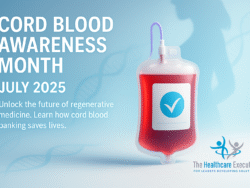National Interprofessional Healthcare Month – April 2025

- Posted by Greg Wahlstrom, MBA, HCM
- Posted in Health Observance Calendar
Leading Together: Executive Support for Team-Based Care
Published: April 10, 2025
April marks National Interprofessional Healthcare Month, a timely reminder that successful patient outcomes are driven by teams—not individuals. As hospitals grow more complex, the need for coordinated care across disciplines becomes mission-critical. Healthcare executives are in a unique position to institutionalize this approach by embedding interprofessional collaboration into operations, culture, and quality initiatives. Studies have shown that interprofessional teams reduce medical errors, improve communication, and boost patient satisfaction scores. Organizations like the National Center for Interprofessional Practice and Education offer proven frameworks for embedding these models into healthcare delivery. Health systems such as Mass General Hospital have pioneered integrated team care rounds that bring together RNs, PTs, pharmacists, and social workers. Healthcare executives should take note—this isn’t just about patient care, it’s about system design.
Executives must align financial and strategic planning with interprofessional goals. Team-based care is only sustainable when supported through staffing models, billing policies, and governance. Executive champions at UCLA Health have built care delivery models where pharmacists and therapists are not peripheral, but central to daily clinical operations. In our blog The Healthcare Workforce Crisis: Executive Solutions That Actually Work, we discuss how sustainable collaboration requires redesigning traditional hierarchies. From executive dashboards to boardroom strategy, interprofessional practice must be a performance indicator. A hospital’s ability to deliver high-quality care increasingly depends on the seamless integration of every provider voice in the system.
Investments in interprofessional education (IPE) can yield major ROI when aligned with care transformation. Hospital leaders can partner with academic institutions to train future clinicians in team-based competencies from day one. For example, University of Minnesota integrates IPE across its nursing, medical, and public health programs, building a shared language for teamwork. Executives can further support this with CME programs that train current staff in collaborative communication and role clarity. In our article Advancing Health Equity Through Strategic Initiatives, we highlight how team models can address disparities by uniting clinical, social, and cultural expertise. These programs must be tracked with metrics—what gets measured gets led. Interprofessional education is more than a soft skill—it’s a strategic pillar.
Executive teams must also consider technology’s role in enhancing team-based workflows. Interoperability across EHRs, role-specific care dashboards, and real-time communication tools are essential infrastructure. At Johns Hopkins Medicine, digital platforms have been designed to include nursing input and rehab services in care planning documentation. In our article AI in the C-Suite: Redefining Decision-Making for Healthcare Executives, we explain how digital strategy must serve clinical goals, not just operational ones. Healthcare leaders must prioritize inclusive tech design that doesn’t silo professionals by title. Tools that elevate every team member’s input drive better care planning, real-time adjustments, and ultimately—patient safety.
April 2025 offers hospital executives a focused moment to evaluate how team-based care is resourced and rewarded in their organizations. True interprofessional collaboration is not a tagline—it is a governance priority. This means supporting shared decision-making structures, updating policies to reflect inclusive teamwork, and elevating success stories internally and externally. The American Public Health Association and Interprofessional Education Collaborative (IPEC) provide toolkits to support system-wide adoption. At The Healthcare Executive, we believe that collaboration is the engine of innovation. Executive commitment to team-based care builds the operational backbone for future-ready hospitals.
Discover More:
For executive readers seeking actionable models to foster clinical integration and shared decision-making, we recommend the following resource.
Internal Links
- The Healthcare Workforce Crisis: Executive Solutions That Actually Work
- Advancing Health Equity Through Strategic Initiatives
- AI in the C-Suite: Redefining Decision-Making for Healthcare Executives



